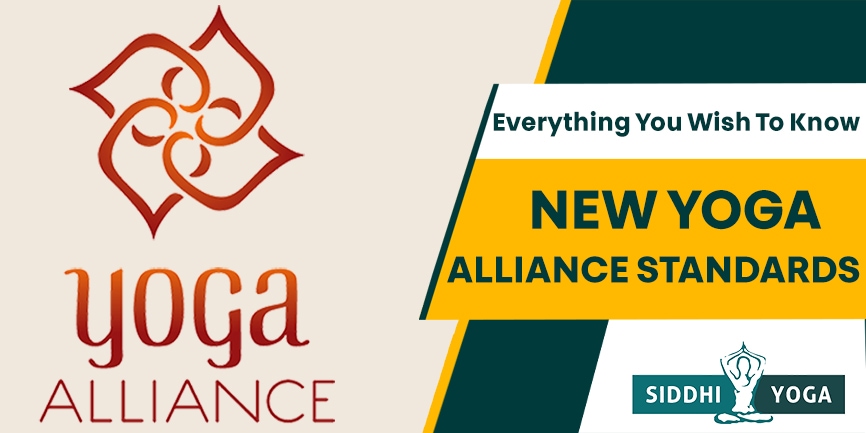
In February of 2020, the Yoga Alliance will begin to implement a new set of standards that all yoga schools offering Yoga Alliance certification will have to abide by.
What are these new standards, and how will it affect the process for enthusiastic yogis looking to acquire the skills and qualifications necessary to teach?
The changes to the standards can be divided into four basic categories. Let’s explore each one of them in some detail.
The Ethical Commitment
In response to several controversies that have occurred in the yoga industry, Yoga Alliance now requires all of their credentialed yoga teachers to sign on to an updated, contemporary ethical commitment.
The ethical commitment is divided into three main categories: A code of professional conduct, the scope of practice, and a commitment to equity in Yoga. This commitment is intended to promote safe, high-quality yoga instruction, reduce harm through negligence or abuse, and foster diversity and equality in the yoga community.
The Common Core Curriculum
One of the biggest changes in the Yoga Alliance standards is that Yoga schools will now be expected to operate within a common core curriculum that will standardize the education being offered at yoga schools to a higher degree than is currently being demanded.
There are four main categories of this common core curriculum, each of which has a required number of classroom hours that need to be devoted to it. In some specific cases, these hours can be completed in online settings.
These four categories are then divided into 12 core competencies that each Yoga teacher is expected to know about before receiving credentials. These competencies are then organized into specific subjects of focus and ideas that need to be covered in the program.
These are the categories and their respective competencies of the new 200 hr teacher training model:
Techniques, Training, and Practice – 75 minimum classroom hours
Competencies: Asana, Pranayama, and Subtle Body, Meditation
Anatomy and Physiology – 30 minimum classroom hours (20 of which can be online)
Competencies: Anatomy, Physiology, Biomechanics
Yoga Humanities – 30 minimum classroom hours (20 of which can be online)
This category used to be called Yoga Philosophy, Lifestyle, and Ethics.
Competencies: History, Philosophy, Ethics
Professional Essentials
This category merges the two previous categories of Teaching Methodology and Practicum (teaching practice and assessment.)
Competencies: Teaching Methodology, Professional Development, Practicum
Strengthened Application and Review Process
New studios, Yoga schools, and lead trainers looking to apply for credentials with the Yoga Alliance will now undergo a more rigorous application and review process before being given the ability to conduct registered Yoga teacher training and award RYT credentials to those who complete their program.
The applicant school must now provide more information and materials to the Yoga Alliance as part of their application. This includes letters of intent from the school and lead trainers, a detailed syllabus, a daily sample schedule, manuals, and training materials, a write-up on their assessment methods, their trainer-to-trainee ratio, their trainee prerequisites, and a copy of their own policies and practices.
The applicant will be given access to a credentialing advisor that can aid them with the process.
Once the application is submitted, it will be scrutinized and assessed by an academic-style peer review panel to ensure the new standards have been met and to maintain consistency and fairness throughout the process.
All registered yoga schools and trainees will also be required to submit themselves to a re-credentialing process every three years, including those currently holding credentials.
Enhanced Lead Trainer Requirements
The new Yoga Alliance standards also include elevated requirements that Yoga teachers will be required to meet before they are certified to lead teacher training. This is to ensure that new teachers are assured of high-quality yoga education from a teacher with a deep familiarity with the practice and thorough knowledge of the yoga trade.
Previously a lead trainer required to hold an E-RYT 200 certification, which required them to acquire 200 hours of teaching experience after receiving their 200-hour yoga teacher training certification. In a 200 hour Yoga teacher training course, the lead trainer was required to personally teach 65 of the 200 hours themselves.
Now a lead trainer will be required to hold an E-RYT 500 certification, which requires them to acquire 500 hours of teaching experience after receiving their 500-hour yoga teacher training certification. In a 200 hour Yoga teacher training course, the lead trainer will now be required to personally teach 150 of the 200 hours themselves.
Frequently Asked Questions:
If I’m already registered as a yoga teacher, do I need to take any additional training to be registered under the new standards?
No. Yoga teachers currently holding Yoga Alliance certification or have completed a yoga teacher training with a registered school before the changes taking effect will still have their credentials honored.
Is there anything I need to do as a currently registered Yoga teacher once these new policies take effect.
Yes. By February 1st, 2020, all registered Yoga teachers will need to sign on to the new ethical commitment and complete an online course on equity in Yoga that will count as 10 continuing education credits.
What if I want to learn more diverse subjects then those covered in the core curriculum? After all, Yoga isn’t just about exercise!
Though a Yoga School must meet the standards set by the Yoga Alliance in the topics they cover, there is nothing stopping them from covering additional topics to suit their particular lineage or the interests of their prospective students. Schools may include whatever they wish beyond the required 200 hours. This could include topics like Ayurveda, Thai Massage, energy work, etc.
When will all of these changes take effect?
In February 2020, the ethical commitment will be put in place, and new schools will have to undergo the new application process and adopt the new teaching standards for RYT 200 training.
By February of 2021, newly registered schools will need to change over to the new system of RYT 300 and RYT500 training.
By February of 2022, all currently registered schools will be required to adopt the changes across all of their programs.
The lead trainer requirements do not go into effect until February of 2022.
We’re excited about these new high standards and are committed to exceeding them as market leaders in Yoga education!
Sign up for one of our intensive online teacher training programs today and gain access to the knowledge of our team of highly experienced and certified yoga teachers.
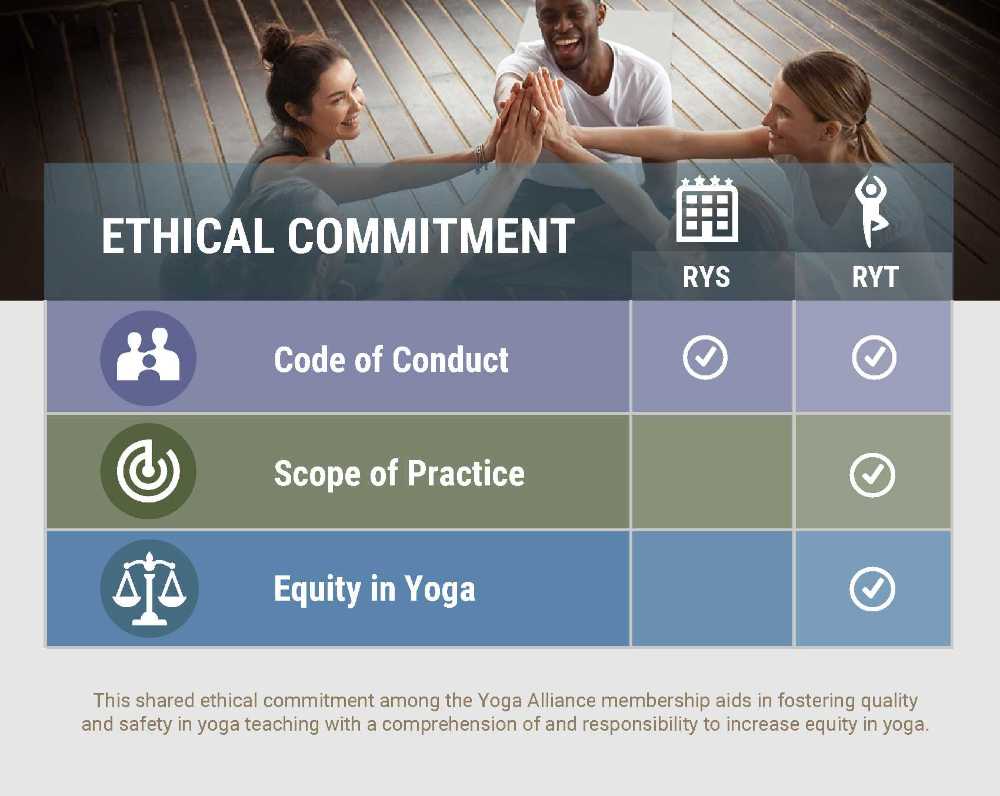
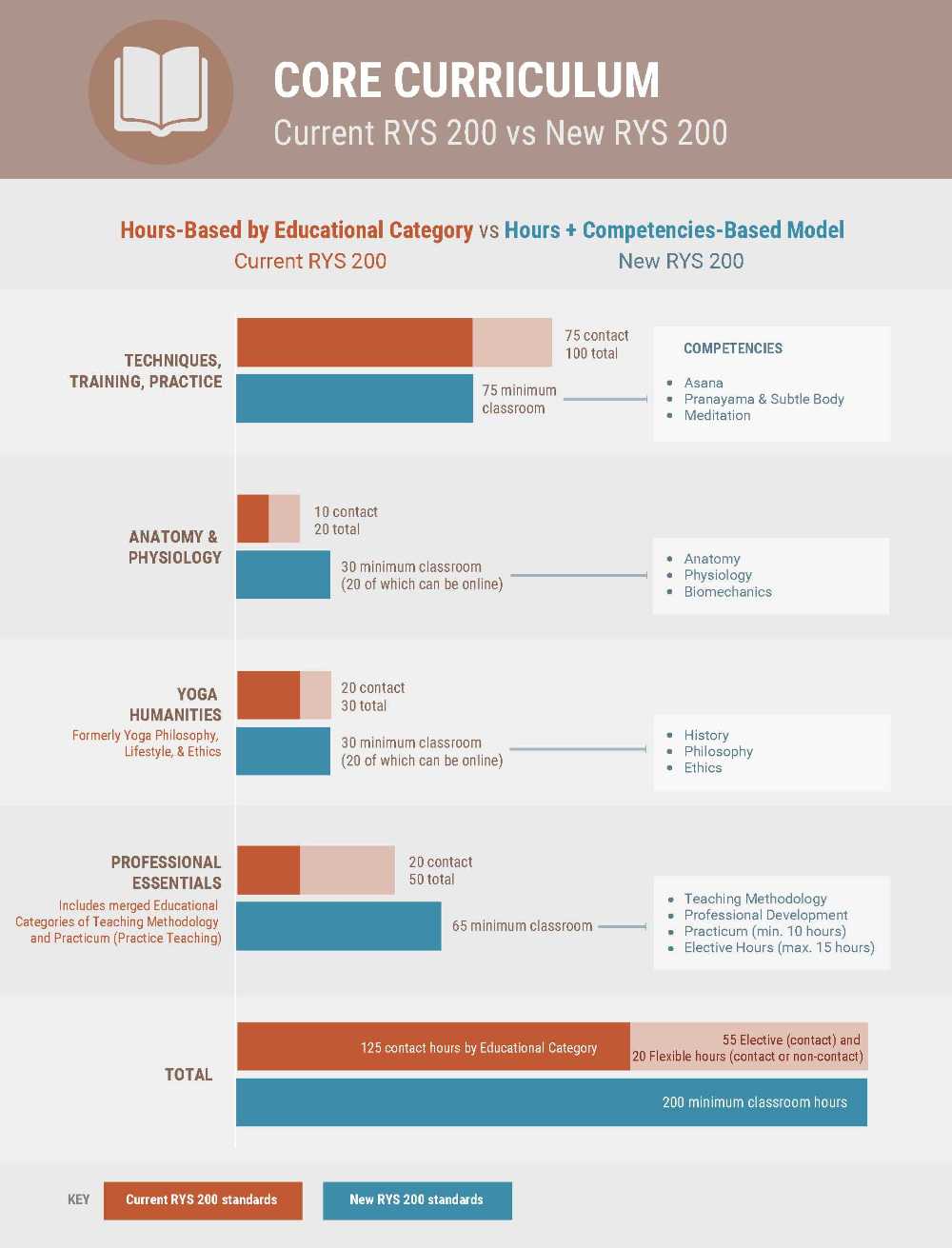
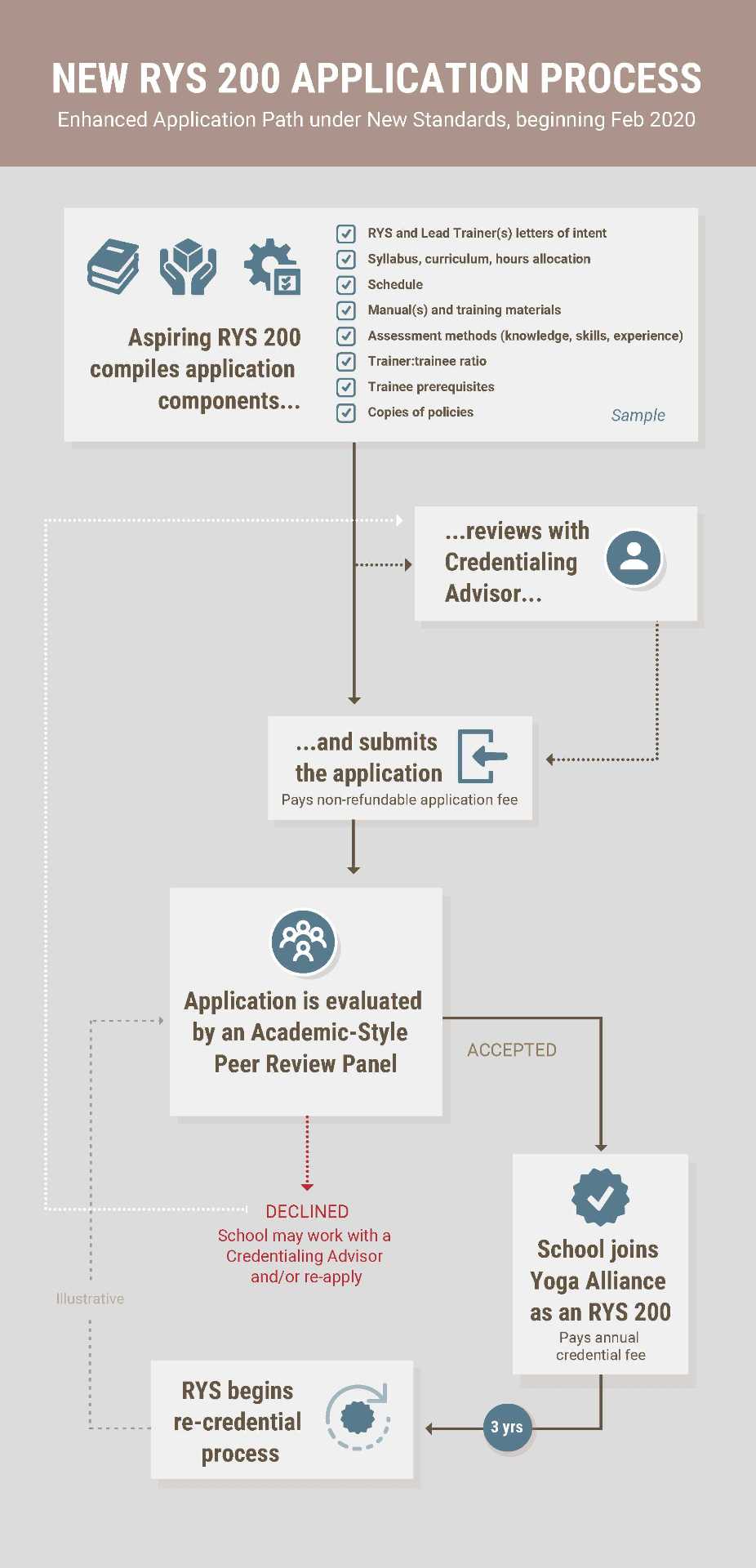
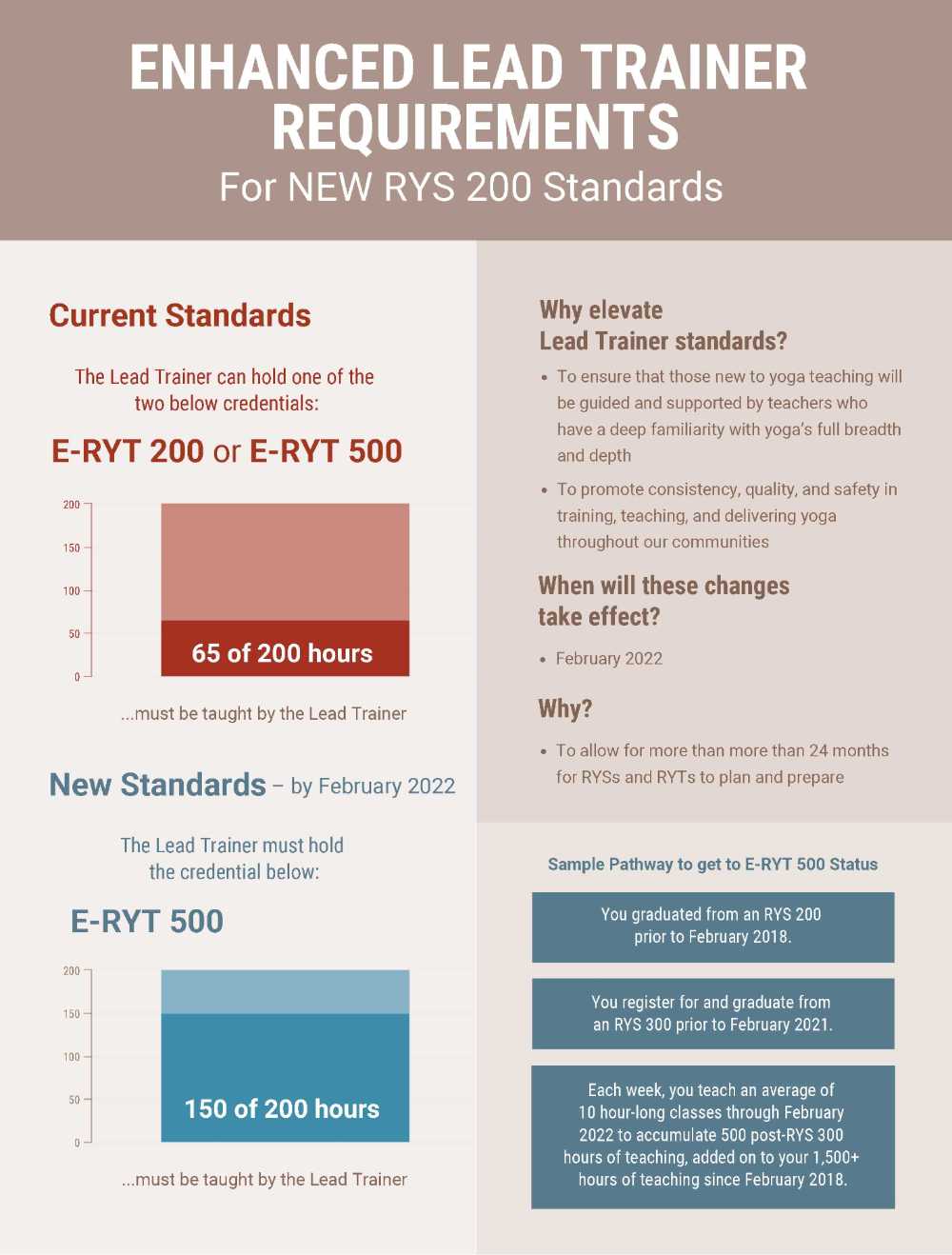
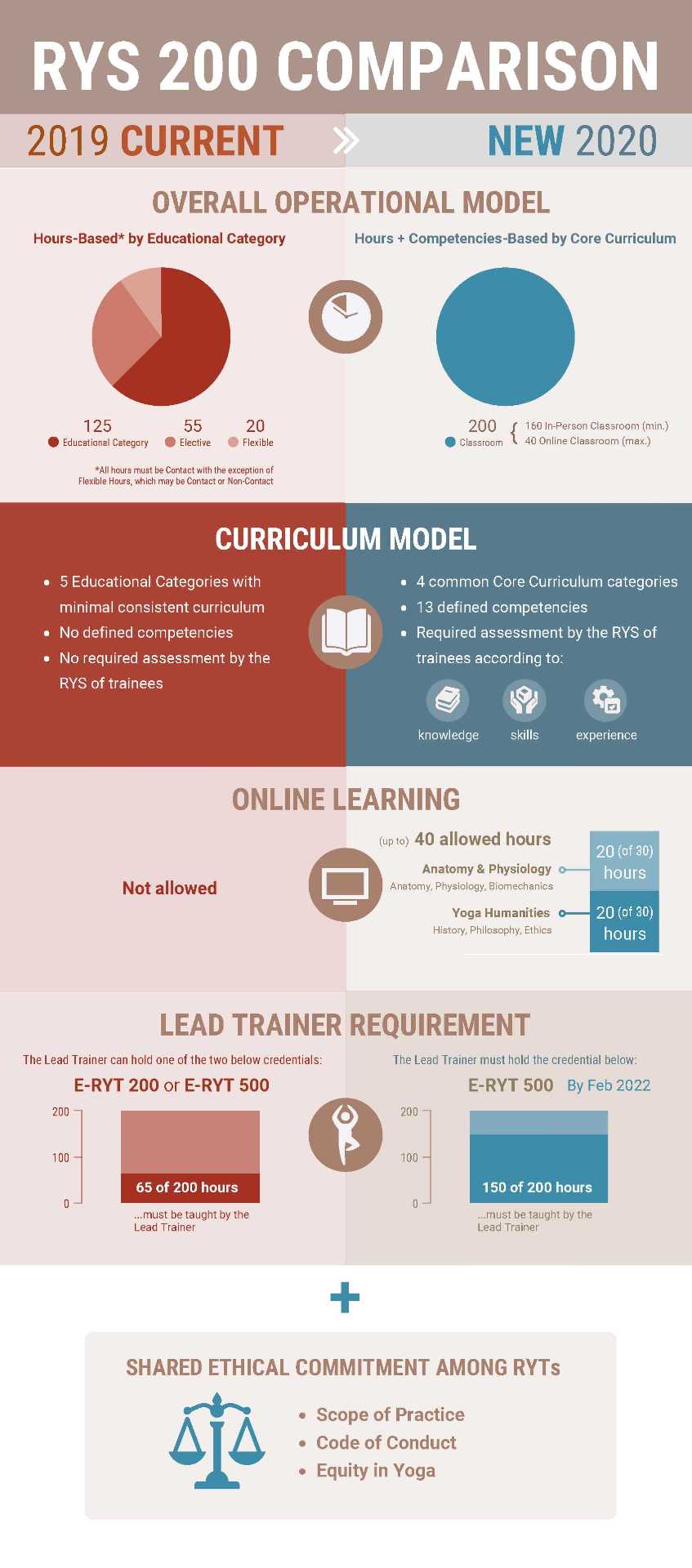
Responses